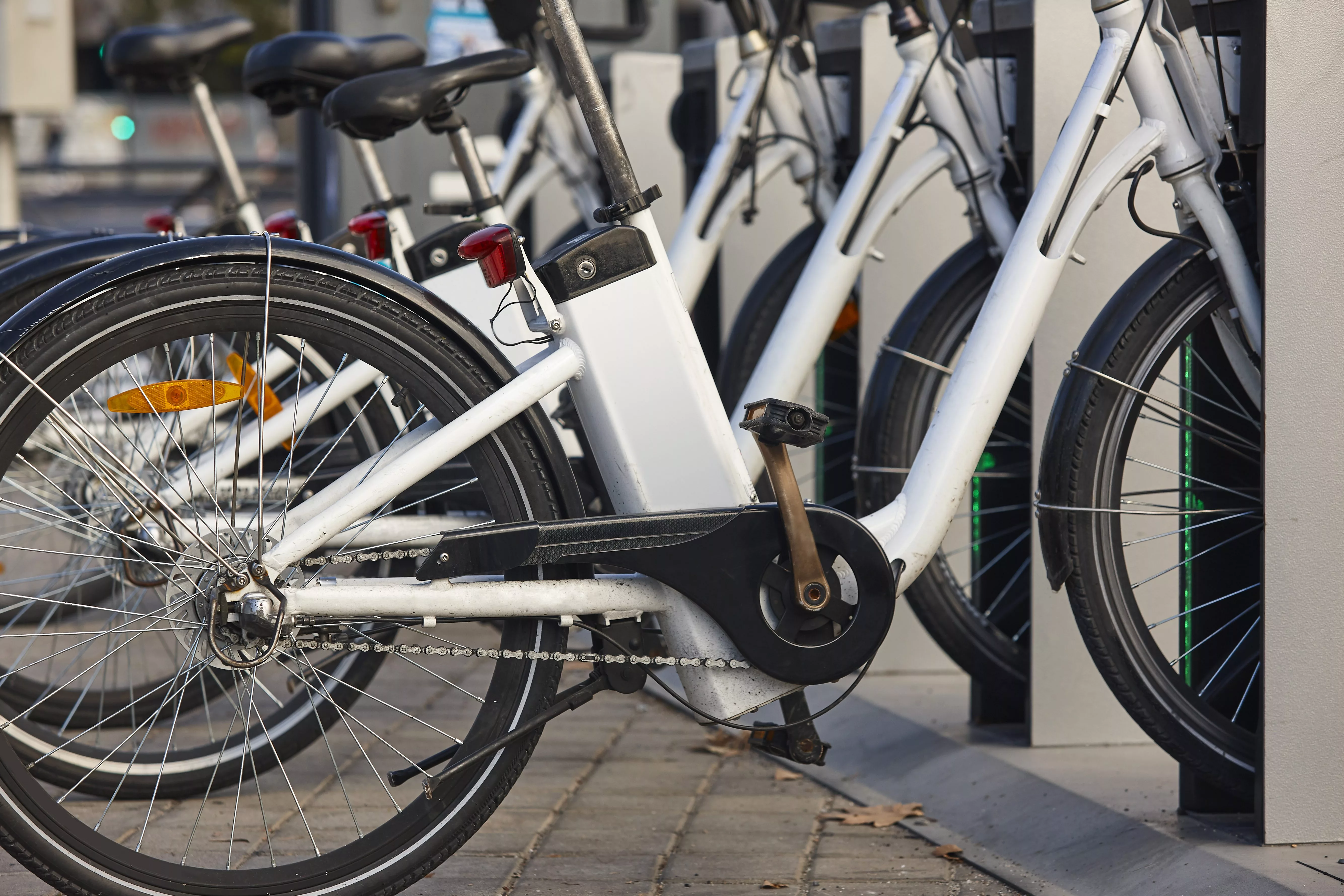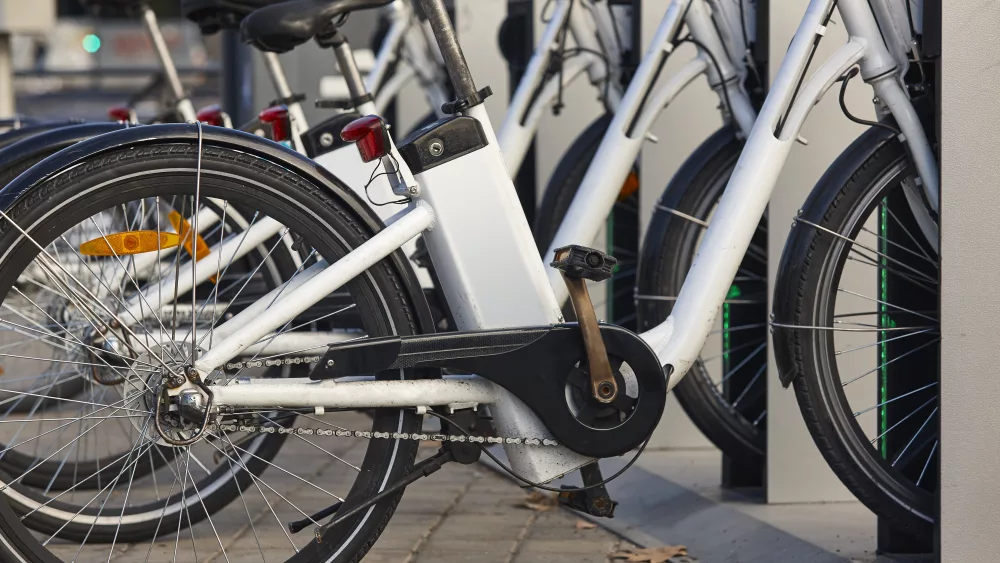
The following article was adapted from a segment of Wednesday’s episode of The Ari Hoffman Show on Talk Radio 570 KVI and reflects the author’s opinion.
Washington State has launched its long-awaited E-Bike rebate program, with $4 million in taxpayer funds set aside to distribute up to 10,000 vouchers. On paper, it’s a feel-good initiative meant to encourage eco-friendly transportation. In reality, it’s another example of how our legislature, driven by Democratic majorities, seems more interested in virtue-signaling than solving actual problems.
Let’s rewind a bit. When the idea first surfaced, we did the math—hundreds of millions allocated for bikes? Even if you bought everyone in Washington a bike and threw in lessons for the entire state, you’d still have money left over. So what was all that cash really going toward?
WA Dems give away E-Bikes while facing $15 billion budget gap
"High-quality E-Bikes often run north of $3,000. So you're telling someone who’s already financially stretched to come up with the rest of that money for something they might only use a few months out of the year? pic.twitter.com/is1ncu76Xq
— Ari Hoffman 🎗 (@thehoffather) April 10, 2025
Now we know: E-Bike rebates. The program offers qualified applicants either a $300 or $1,200 rebate—if you make less than the state’s median income. But here’s the kicker: high-quality e-bikes often run north of $3,000. So you’re telling someone who’s already financially stretched to come up with the rest of that money for something they might only use a few sunny months out of the year?
And that’s if they use it at all. My father-in-law bought an E-Bike, rode it for five minutes, and promptly sold it. Sure, they’re fun. I’ve thought about using one myself. I imagined cruising downhill from work in the Seattle sun, letting the motor do the heavy lifting on the way back up. But then reality hit. It rains in the Pacific Northwest eight months out of the year, and I like driving my Dodge Charger (shout-out to my sponsor, Renton Chrysler Dodge Jeep Ram for the new all-weather tires).
Meanwhile, Seattle has spent $11 million per mile on bike lanes that sit empty most of the time. E-bikes might sound like a solution, but they’re really just another expensive toy disguised as transportation reform. If everyone’s on an e-bike, what’s the justification for the billions we spend on public transit?
This comes at a time when Washington is facing a projected $15 billion budget deficit. That’s not a typo—$15 billion. And instead of reining in spending, lawmakers are coming up with new ways to tax us. Case in point: the proposed packaging tax, which could jack up the price of everyday grocery items by as much as 27%. You name it—cling wrap, sandwich bags, clamshell containers—it’s all getting more expensive. It’s essentially a “parent tax” or a “fast food tax.” Anything you use to pack a kid’s lunch or pick up takeout is fair game.
House Democrats are pushing a bill from the Senate that could increase the prices of packaged food items by as much as 27%.
These taxes on Washington families could not come at a worse time: 55% of Washington residents are experiencing food insecurity, according to the latest… pic.twitter.com/hRgLvidbjY
— WA House Republicans (@WaHouseGOP) April 9, 2025
According to the Washington State Food Security Survey, 55% of residents are experiencing food insecurity. Have you driven past a food bank lately? The lines are longer than ever, and yet our legislature’s focus is on subsidizing e-bikes instead of addressing real economic pain.
This is all compounded by the Climate Commitment Act—a policy that’s jacking up gas prices through carbon credit limitations and permit caps. You’ve felt it at the pump. When gas prices go up, everything else follows: food, clothing, and household goods. Most of our stuff doesn’t magically appear on shelves—it’s hauled in by trucks that run on gas. And what’s the government’s response? More taxes, tied to inflation, which will never stop climbing.
President Trump recently signed an executive order targeting a number of these so-called climate initiatives, including the infamous Obama-era showerhead restrictions. It’s a move rooted in common sense: we have desalination tech, we’re next to the ocean, and yet we can’t manage our water supply. The same logic applies to energy—why aren’t we leaning harder into nuclear, which is finally gaining popular support?
Instead, Washington lawmakers are doubling down on unsustainable spending, pushing new taxes while refusing to cut costs. This isn’t about climate. It’s about control and cash—massive revenue from carbon taxes, repackaged as an environmental concern. And you’re footing the bill.
You want to ride a bike to work? Great. It’s good for your health, good for the environment, and it costs nothing once you own it. But you don’t need a taxpayer-funded e-bike to do it—especially when that e-bike still needs to be charged using electricity that isn’t as green as we like to think, with batteries that leave a heavy environmental footprint.
This is a policy driven by optics, not outcomes. We’re told it’s about sustainability, but in reality, it’s just another expensive giveaway for feel-good points. And Washington families are paying the price—at the pump, at the store, and at every checkout counter in the state.
Listen to The Ari Hoffman Show 3-6 pm Pacific on Talk Radio 570 KVI.






